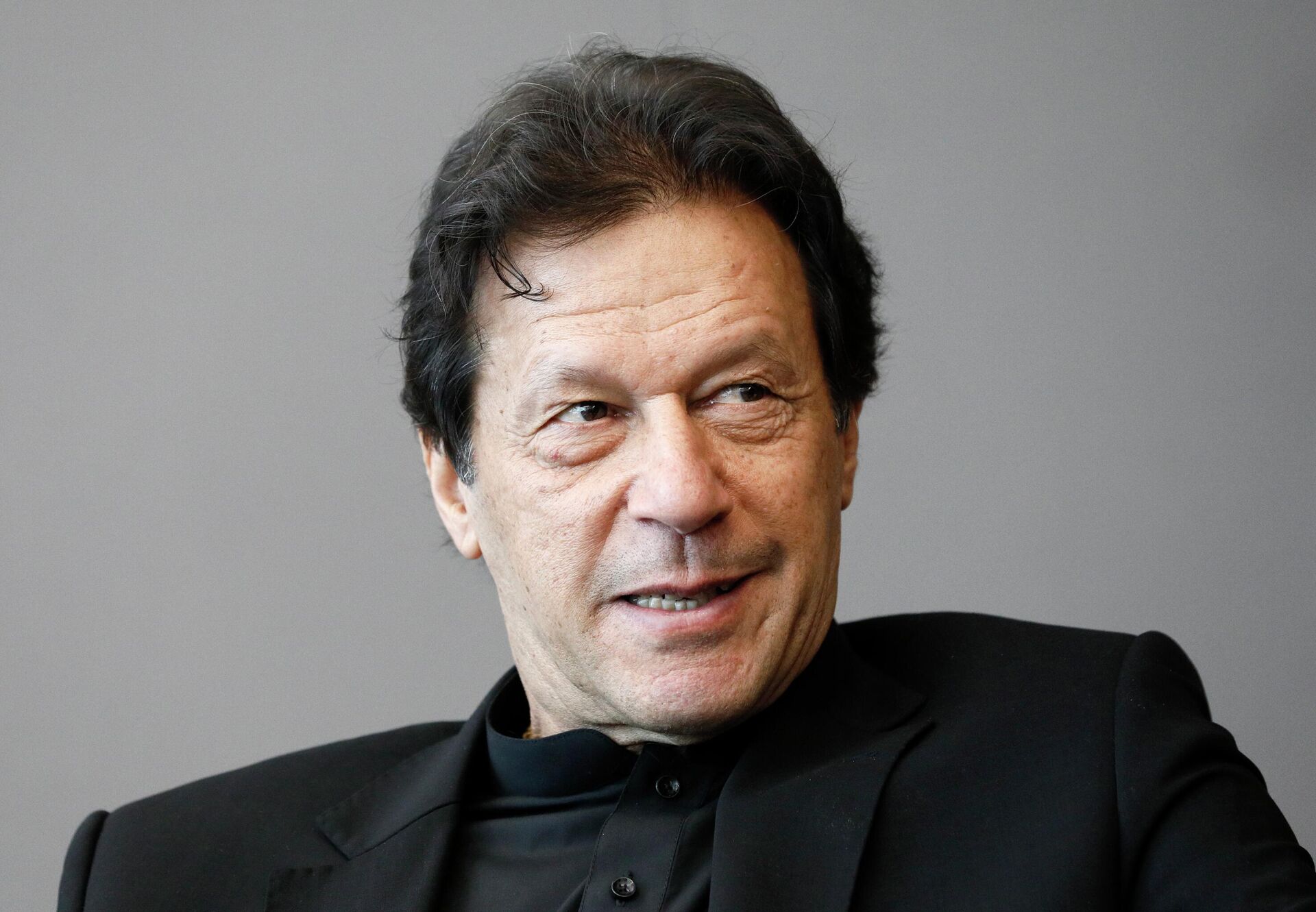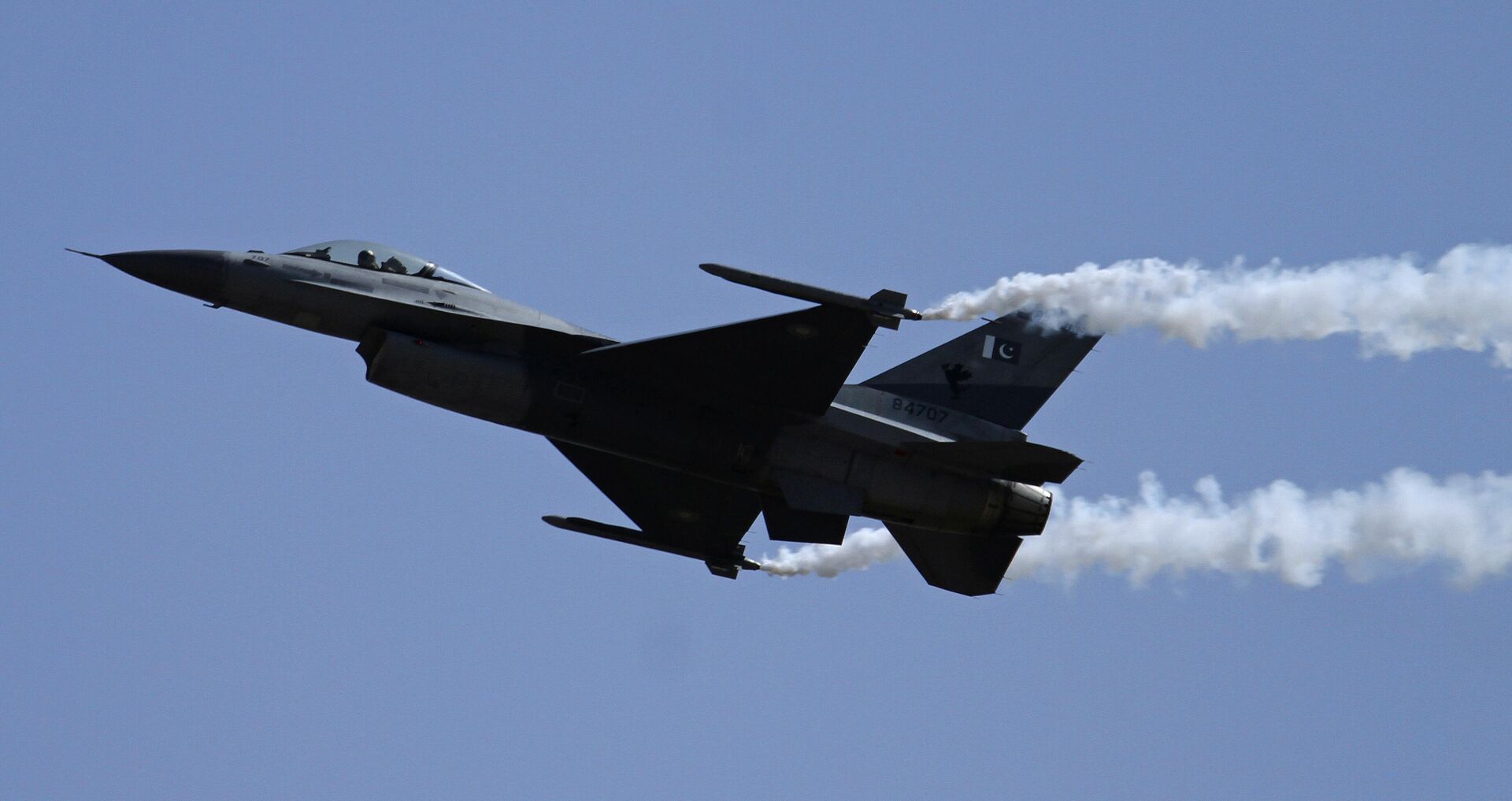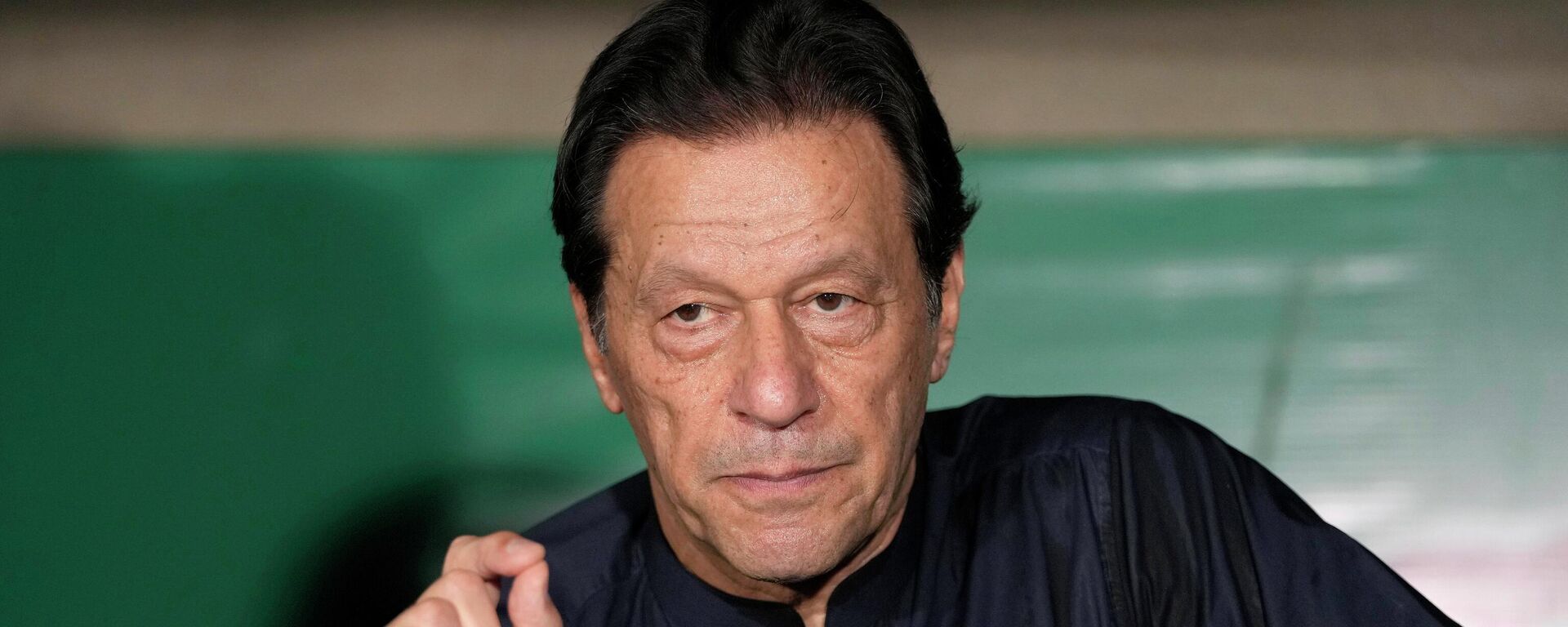https://sputniknews.in/20230810/why-is-us-afraid-of-pakistan-growing-closer-to-russia-3510457.html
Why Is US Afraid of Pakistan Growing Closer to Russia?
Why Is US Afraid of Pakistan Growing Closer to Russia?
Sputnik India
he US views Pakistan as a “pliable” tool to maintain its global strategic primacy, particularly in South Asia, ex-Indian officials have told Sputnik.
2023-08-10T15:46+0530
2023-08-10T15:46+0530
2023-08-10T16:34+0530
sputnik opinion
imran khan arrest
imran khan
pakistan
us
joe biden
russia
china
india
vladimir putin
https://cdn1.img.sputniknews.in/img/07e7/08/08/3454926_0:336:2636:1818_1920x0_80_0_0_0cf74cb6c04664d0c9f1c83ba6d57a61.jpg
The US views Pakistan as a tool to maintain its global strategic primacy, particularly in South Asia, ex-Indian officials have told Sputnik India.According to a leaked diplomatic cable reported in The Intercept, the Biden administration warned Islamabad last March against taking an “aggressively neutral stand” on Ukraine. The US even endorsed the no-confidence vote that eventually led to ex-PM Imran Khan’s ouster.He said that Pakistan’s close ties with China, its largest military hardware supplier and biggest foreign investor, were also a “factor” in the US trying to keep Islamabad on its side.He reckoned that Pakistan would inadvertently grow close to Russia on account of significantly expanded strategic partnership between Russia and China since the meeting between Chinese President Xi Jinping and Russian President Vladimir Putin last February.The Biden administration’s National Security Strategy released last October describes Russia as an “immediate threat”, while calling China as the “most consequential geopolitical challenge”.This year, Moscow has consistently ranked as India’s top supplier of crude in spite of G-7 curbs on Russian energy exports.Some of Vasan's views were echoed by Alexey Martynov, a political scientist and the Director of International Institute of Recent States.US Views Pakistan as ‘Tool’ in its Geopolitical AmbitionsAnil Trigunayat, a former Indian Ambassador and strategic affairs expert, told Sputnik India that Islamabad has served as a “tool” for the US and other global powers in the course of its post-Independence history.Trigunayat noted that Pakistan’s establishment has been able to benefit from its “hobnobbings” with superpowers, but such a foreign policy has had an “unprincipled dimension”.“In the context of Afghanistan, its role in managing the situation has been supported by Russia as well,” he added.Trigunayat noted that Washington has been offering Pakistan’s economy with crucial backing it needs to secure the International Monetary Fund (IMF) loan since last year.He also noted that the Biden administration last September approved a $450 million foreign military sales (FMS) package to help sustain Pakistan Air Force’s (PAF) F-16 fighter jet fleet.The programme had been suspended by the previous Trump administration, which had accused Islamabad of “playing a double game for years” in backing the Taliban while allying with the US during the War on Terror.Pakistan Has the ‘Right’ to Establish Relations with All the CountriesSudheendra Kulkarni, a former Prime Ministerial advisor, told Sputnik India that Pakistan has the “right to establish friendly and cooperative relations” with all the countries in the world.He said that the only condition that Pakistan must adhere to was that such ties shouldn’t be targeted against a “third country”.
https://sputniknews.in/20230810/us-admits-cypher-pointing-to-its-role-in-imran-khans-ouster-is-nearly-accurate-3503582.html
pakistan
us
russia
china
india
afghanistan
ukraine
Sputnik India
feedback.hindi@sputniknews.com
+74956456601
MIA „Rossiya Segodnya“
2023
Dhairya Maheshwari
https://cdn1.img.sputniknews.in/img/07e6/0c/13/138962_0:0:641:640_100x100_80_0_0_2cb44360dbcdf6d84bf4b299cd045917.jpg
Dhairya Maheshwari
https://cdn1.img.sputniknews.in/img/07e6/0c/13/138962_0:0:641:640_100x100_80_0_0_2cb44360dbcdf6d84bf4b299cd045917.jpg
News
en_IN
Sputnik India
feedback.hindi@sputniknews.com
+74956456601
MIA „Rossiya Segodnya“
Sputnik India
feedback.hindi@sputniknews.com
+74956456601
MIA „Rossiya Segodnya“
Dhairya Maheshwari
https://cdn1.img.sputniknews.in/img/07e6/0c/13/138962_0:0:641:640_100x100_80_0_0_2cb44360dbcdf6d84bf4b299cd045917.jpg
imran khan, imran khan news, imran khan latest, imran khan pakistan pm imran khan latest news, us pakistan news, us pakistan relations, imran khan arrest, imran khan news update, imran khan today pakistan, us cypher pakistan, russian oil exports, russian oil, india russia relations, india russia trade, is pakistan a us or russian ally, why is pakistan important to usa, is pakistan friendly with russia, what is the relationship between pakistan and russia,
imran khan, imran khan news, imran khan latest, imran khan pakistan pm imran khan latest news, us pakistan news, us pakistan relations, imran khan arrest, imran khan news update, imran khan today pakistan, us cypher pakistan, russian oil exports, russian oil, india russia relations, india russia trade, is pakistan a us or russian ally, why is pakistan important to usa, is pakistan friendly with russia, what is the relationship between pakistan and russia,
Why Is US Afraid of Pakistan Growing Closer to Russia?
15:46 10.08.2023 (Updated: 16:34 10.08.2023) The US has admitted that it was concerned about the "policy choices" of ex-Pakistan PM Imran Khan, who wanted closer ties with Russia before he was ousted from power last April.
The US views Pakistan as a tool to maintain its global strategic primacy, particularly in South Asia, ex-Indian officials have told Sputnik India.
“The US has already been unsuccessful in trying to convince India to tone down its relations with Russia in the wake of the Ukraine conflict and even before that,” remarked Seshadri Vasan, an Indian Navy veteran and the Director-General of Indian think tank Chennai Centre of China Studies (C3S).
According to a
leaked diplomatic cable reported in The Intercept, the
Biden administration warned
Islamabad last March against
taking an “aggressively neutral stand” on
Ukraine. The US even endorsed the no-confidence vote that eventually led to ex-PM
Imran Khan’s ouster.
Vasan explained that Pakistan, a US ally during the Cold War and a “major non-NATO ally” during the ‘War on Terror’, was part of a “global plan” of Washington to lobby international support against Russia over Ukraine.
He said that Pakistan’s close ties with China, its largest military hardware supplier and biggest foreign investor, were also a “factor” in the US trying to keep Islamabad on its side.
“In the growing US-China global rivalry, Washington would want to wean Pakistan away from China in the long-run,” Vasan underlined.
He reckoned that Pakistan would inadvertently grow close to Russia on account of significantly expanded strategic partnership between Russia and China since the meeting between Chinese President Xi Jinping and Russian President Vladimir Putin last February.
The Biden administration’s National Security Strategy released last October describes Russia as an “immediate threat”, while calling China as the “most consequential geopolitical challenge”.
For its part, not only has India refused to heed US-led calls to vote against Russia at the United Nations, it has also doubled down on its economic partnership with Moscow by significantly increasing its intake of Russian oil since last year.
This year, Moscow has consistently ranked as India’s top supplier of crude in spite of G-7 curbs on Russian energy exports.
Some of Vasan's views were echoed by Alexey Martynov, a political scientist and the Director of International Institute of Recent States.
Martynov said that Washington was exerting "powerful pressure" on politicians like Khan, who "by sound logic and sober memory are trying to maintain neutrality" on Ukraine.
"The stance of states on this (Ukraine) issue is extremely important for Washington, especially of such large ones as Pakistan," he said.
US Views Pakistan as ‘Tool’ in its Geopolitical Ambitions
Anil Trigunayat, a former Indian Ambassador and strategic affairs expert,
told Sputnik India that Islamabad has
served as a “tool” for the US and other global powers in the course of its post-Independence history.
“The USA and other superpowers obviously find Pakistan as a pliable tool. When certain Pakistani leaders, for their own personal benefit, try to play one against the other, they create some concerns. In my view, that is exactly what happened,” the former Indian diplomat said.
Trigunayat noted that Pakistan’s establishment has been able to benefit from its “hobnobbings” with superpowers, but such a foreign policy has had an “unprincipled dimension”.
“Pakistan has essentially survived, despite its blatant support for cross-border terrorism, due to its several benefactors including the USA and iron-clad friend China,” the ex-Indian diplomat said.
“In the context of Afghanistan, its role in managing the situation has been supported by Russia as well,” he added.
Trigunayat noted that Washington has been offering Pakistan’s economy with crucial backing it needs to secure the International Monetary Fund (IMF) loan since last year.
He also noted that the Biden administration last September approved a $450 million foreign military sales (FMS) package to help sustain Pakistan Air Force’s (PAF) F-16 fighter jet fleet.
The programme had been suspended by the previous Trump administration, which had accused Islamabad of “playing a double game for years” in backing the Taliban while allying with the US during the War on Terror.
Pakistan Has the ‘Right’ to Establish Relations with All the Countries
Sudheendra Kulkarni, a former Prime Ministerial advisor, told Sputnik India that Pakistan has the “right to establish friendly and cooperative relations” with all the countries in the world.
“The United States has no right to dictate to Pakistan, or for that matter any other sovereign nation, this matter,” Kulkarni stated.
He said that the only condition that Pakistan must adhere to was that such ties shouldn’t be targeted against a “third country”.
“Interference by a big power in the internal matters of another country, to the extent of influencing who should or should not be its prime minister, undermines a stable and democratic world order,” Kulkarni highlighted.





